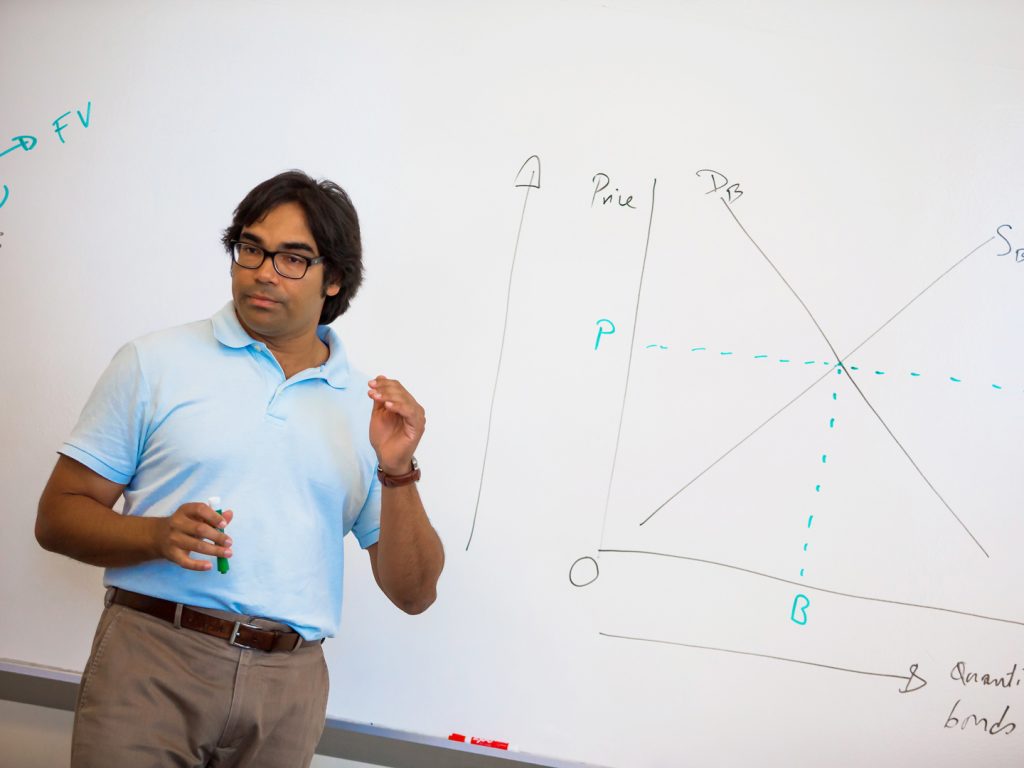The economics program at New College provides students with the analytical tools that will enable them to understand and assess the events and decisions that affect society at large as well as their own professional and personal lives.

About the Economics Area of Concentration
An understanding of economic principles is crucial to evaluating major national policy issues such as health care reform and international policy issues such as the desirability of free trade agreements. Students who master the “economic way of thinking” will be equipped to make intelligent decisions in their professional lives, whether they be an entrepreneur, a financial advisor, a lawyer, or an administrator for a nonprofit organization. On a personal level, an understanding of basic economics is useful in making critical decisions like whether to pursue a graduate education, buy a house, or how to invest in one’s retirement portfolio.
The Quantitative Economics AOC allows students to graduate with a STEM degree by focusing on empirical and applied economics, as well as developing solid econometrics and mathematical modeling skills to analyze economic issues. This AOC provides students with a quantitative curriculum with advanced training in Econometrics, Mathematics, and/or Computer Science. Empirical and data analytical skills are increasingly demanded by employers, and graduates with this AOC will be able to solve sophisticated economic problems using both analytical and applied approaches. This AOC is also recommended for students interested in pursuing graduate studies in Economics, Finance, Statistics, and Data Analytics. Students are expected to conduct empirical research and must include a substantial quantitative economics component in their thesis project.
Another option is an AOC in Economics with Finance as a secondary field, providing students the opportunity to explore interesting topics including but not limited to corporate finance, financial markets, international business and taxation.
Featured Course
ECON 3480
Big Data Economics
This course provides an overview on how big data can be utilized to solve contemporary economic and social problems. Students will be provided with an opportunity to explore frontier research in equality, social mobility, education, innovation, health care, climate change, crime and entrepreneurship. Basic statistical methods and data analysis tools will be introduced to students, including regression analysis, causal inference, experimental methods, and others that focus on using big data in real-world applications.
Recent Courses
|
|
Career Pathways
- Analyst
- Business Analyst
- Financial Planner
- Economist
- Educator
- Researcher
- Entrepreneur
Contact Us
Social Sciences Division
Phone Number
Email Address
Location
Social Science 102
Economics Faculty
Tracy Collins
Associate Professor of Economics
Andrew G Humphries
Visiting Assistant Professor of Economics
Dr. Tarron Khemraj
Professor of Economics and International Studies
William and Marie Selby Chair
Dr. Sherry Yu
Associate Professor of Economics and Finance




